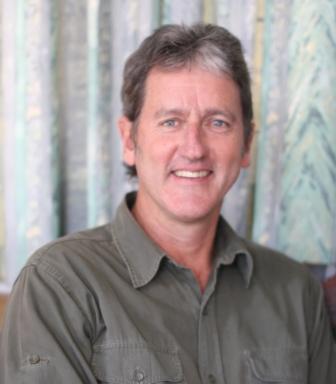
This week academics from Law Faculties across South Africa convened with practising professionals at Rhodes University to celebrate the progressive jurisprudence of the Eastern Cape Bench for the past 16 years.
'The Eastern Cape Bench and Social Justice' Conference, was hosted by the Rhodes Law Faculty which, during its 105 year long history, has enjoyed a tradition of cooperation with the Bench of the Eastern Cape Division of the High Court that has manifest itself in a number of practical ways.
An informal, mutually beneficial arrangement makes the well-resourced High Court and Law Faculty libraries available to Faculty staff and judges alike.
Judges have assisted the Faculty in their educational endeavours; including external examination, presiding in moots and mock trials, providing guest lectures in a range of courses, and making speeches at important Faculty functions.
Law students are similarly exposed to the work of the Bench through cases undertaken by the Faculty’s law clinic and visits to the High Court, which are often facilitated by presiding judges.
“The benefits to law students and staff from this kind of interaction are immense, and help to root the academic legal project firmly in the world of practice,” said Professor Jonathan Campbell, Dean of the Faculty of Law. Given that the LLB is a professional degree, this relationship thus bodes well for the future practice of law in South Africa.
The honourable East Cape High Court Judge Clive Plasket, who was also the programme convenor, gave the keynote address. Judicial decisions made by the Eastern Cape Bench over the years informed four highly relevant and topical subject sessions. These included administrative law, enforcement of judgements and costs orders, social security law and land reform.
Discussing Administrative Law, Wits University’s Prof Cora Hoexter described how in the furtherance of social justice, members of the Eastern Cape Bench had contributed richly to the development of South African administrative law. Johannesburg advocate Steve Budlender discussed the rules of procedure for judicial review of administrative action. Professor Geo Quinot of Stellenbosch described how the obligation of government to explain administrative action or decisions provides the key to the realisation of fundamental rights. Mr Jay Kruuse, head of the Public Service Accountability Monitor (PSAM) which is based at Rhodes, argued that social justice, good governance and fundamental human rights can only thrive when there is meaningful public participation informed by timely access to relevant information.
During the session on the Enforcement of judgements and cost orders Mr Wandisile Mandlana of Bowman Gilfillan gave an overview of the jurisprudence of the Eastern Cape Bench in the enforcement of court orders against the State. Dr Rosaan Kruger, a Rhodes senior lecturer, described how the social assistance litigation industry cost the taxpayer millions of Rands per year in unnecessary legal expenses. South Gauteng High Court Advocate David Matlala, an Adjunct Professor at the University of Fort Hare, spoke about structural interdicts. And Mr Tembeka Ngcukaitobi of the Legal Resources Centre spoke about how the placement of the judiciary within the socio-political context has the potential to explain the conditions necessary for social change.
Social Security Law came under the spotlight when Prof Chucks Okpaluba of the National University of Lesotho and Adjunct Professor at Fort Hare argued that the problem besetting the administration of social grants in the province, and quite recently, nationally, is the lack of well-trained manpower to implement the laudable legislative measures. Prof Avinash Govindjee of Nelson Mandela Metropolitan University spoke about assisting the unemployed in the absence of a legal framework. Mr Francisco Khoza of Bowman Gilfillan presented on the right of access to social security and the private pension provision for vulnerable workers. Prof Marius Olivier, the director of the (International) Institute for Social Law and Policy and Extraordinary Professor at Northwest University argued that a substantial overhaul of the current social assistance dispute resolution system is required in accordance with the constitutional mandate and international best practice.
In the final session on Land Reform Ms Anne Pope of UCT gave a retrospective evaluation of trends and patterns in eviction jurisprudence between 1996 and 2010. Professor Juanita Pienaar of Stellenbosch spoke about new developments in tenure reform in South Africa. Rhodes University’s Prof Richman Mqeke discussed the impact of land reform on African land tenure practices in the Eastern Cape, while Mr Steve Kahanovitz of the Legal Resources Centre engaged with the Prevention of Illegal Eviction Act.
An address was also given at the gala dinner by the Honourable Justice Lex Mpati, President of the Supreme Court of Appeal (SCA), and the conference was closed by Judge Craig Howie, former President of the SCA.
The conference also honoured the distinguished careers of former Judge President Cecil Somyalo and former Judge Jos Jones, both of whom retired from active bench duty in April 2010. Somyalo and Jones continue to serve on the Rhodes University Council, Judge Jones as Chairperson, thus continuing the long association between the two institutions.
Picture: Professor Jonathan Campbell, Dean of the Faculty of Law.
